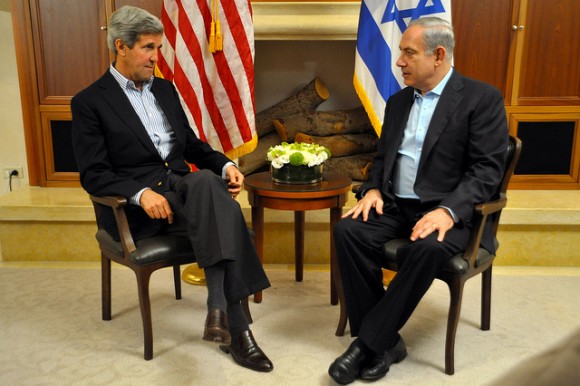At each of the over 200 cities I’ve traveled to this past year with my book Drone Warfare: Killing by Remote Control, I ask the audience an easy question: Have they ever seen or heard from drone strike victims in the mainstream US press? Not one hand has ever gone up. This is an obvious indication that the media has failed to do its job of humanizing the civilian casualties that accompany President Obama’s deadly drone program.
This has started to change, with new films, reports and media coverage finally giving the American public a taste of the personal tragedies involved.
On October 29, the Rehman family – a father with his two children – came all the way from the Pakistani tribal territory of North Waziristan to the US Capitol to tell the heart-wrenching story of the death of the children’s beloved 67-year-old grandmother. And while the briefing, organized by Congressman Alan Grayson, was only attended by four other congresspeople, it was packed with media.
Watching the beautiful 9-year-old Nabila relate how her grandmother was blown to bits while outside picking okra softened the hearts of even the most hardened DC politicos. From the Congressmen to the translator to the media, tears flowed. Even the satirical journalist Dana Milbank, who normally pokes fun at everything and everyone in his Washington Post column, covered the family’s tragedy with genuine sympathy.
The visit by the Rehman family was timed for the release of the groundbreaking new documentary Unmanned: America’s Drone Wars by Robert Greenwald of Brave New Foundation. The emotion-packed film is filled with victims’ stories, including that of 16-year-old Tariq Aziz, a peace-loving, soccer-playing teenager obliterated three days after attending an anti-drone conference in Islamabad. Lawyers in the firm pose the critical question: If Tariq was a threat, why didn’t they capture him at the meeting and give him the right to a fair trial? Another just released documentary is Wounds of Waziristan, a well-crafted, 20-minute piece by Pakistani filmmaker Madiha Tahir that explains how drone attacks rip apart communities and terrorize entire populations.
Continue reading “The Victims of Drones Have Come Out of the Shadows”






